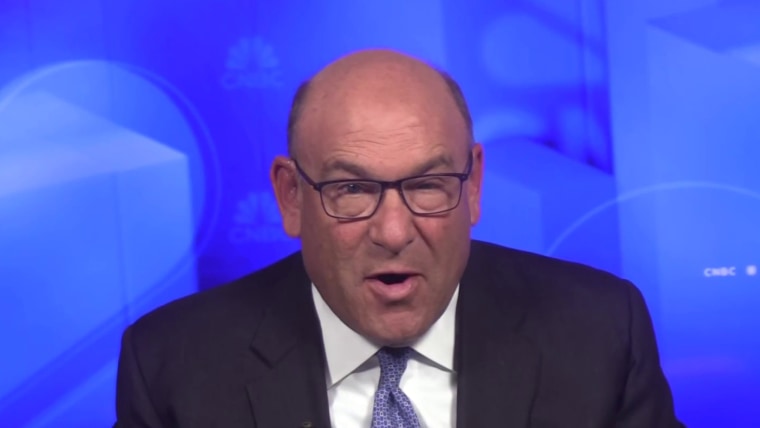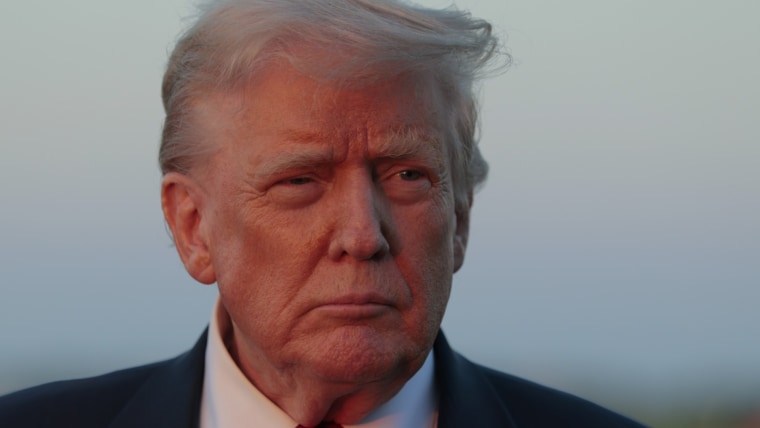President Donald Trump’s firing of Bureau of Labor Statistics Commissioner Erika McEntarfer — a widely respected economist whom 86 senators voted to confirm to the position just last year — was a dangerous signal from the Trump administration. Independent data and those who steward it may no longer be insulated from political score settling. Economists and statisticians of all backgrounds — from left, right and center, academic to industry — denounced the firing. But one group remained conspicuously unmoved: Financial markets barely shrugged Friday.
That reaction was hard to reconcile. The jobs data that led to McEntarfer’s firing moved markets precipitously in the morning, yet the prospect that data might be under threat created essentially no effect later that day. The net movement of the U.S. dollar was zero in less than an hour. By Monday, the market had even recovered from Friday morning’s slump. What could be happening here?
2025 has been marked by attacks on the information and science infrastructure of the modern U.S. economy.
First, it’s plausible Friday’s firing of the BLS commissioner will not affect the economy or markets at all. With McEntarfer ousted, BLS Deputy Commissioner William Wiatrowski began his third tour as acting chair. While the agency has struggled with financial constraints even before Trump returned to the White House, the quality and objectivity of its data has never been seriously in question. The BLS remains one of the most respected independent producers of economic statistics and statistical research in the world — even if perhaps slightly less unimpeachably credible than it was last week.
Another explanation is worth considering: Have the most powerful in our economy lost track of the faceless public servants who lay the foundation we’ve built the wealthiest, most productive economy in history atop? These elites trade, invest and govern with confidence in the accuracy and objectivity of the very data they now seem indifferent to as it comes under pressure.
This is not unique to BLS (disclosure: I served on a BLS advisory committee until it was dissolved in January). 2025 has been marked by attacks on the information and science infrastructure of the modern U.S. economy. The assaults have often been spearheaded by beneficiaries of that infrastructure. Whether it’s National Science Foundation–funded research or expert vaccine advisory panels, the hard work of understanding our world is being gleefully undercut. Five years after scientists who toiled in obscurity for decades saved us from a pandemic, the kinds of teams that make these breakthroughs possible have gone from cultural heroes to targets.

As quiet, mission-driven public servants like the BLS staff are pressured from within government, the new crop of more political hires increasingly embodies the flashy overconfidence that has migrated from used car salesmen to CEO culture. The quiet competence that defined public service for decades is now taking a back seat to loud confidence and empty spectacle. From a billionaire falsely claiming that 20 million dead Americans collect Social Security, to a health secretary vowing to solve autism “by September,” to a former reality-TV star pledging a nuclear power plant on the moon, study is out and celebrity is in. And this shift isn’t limited to public discourse — it has seeped into our institutions.
Financial commentators have widely predicted that should the president fire Federal Reserve Chair Jerome Powell, markets would tank as investors moved their money to more stable economies. This concern is significant enough that scholars have pointed to it as one reason that a recent Supreme Court ruling that allowed Trump to fire the heads of independent agencies explicitly exempted the Federal Reserve. But Friday should have served as a wake-up call — to commentators, markets and policymakers — that the Fed is not an island. The narrow protection of the Fed ignores a deeper truth: Institutions like the Fed can’t function in isolation from the broader ecosystem of independent, credible public servants. Undermining agencies like the BLS threatens the foundation that the Fed itself relies on.
As AI hype takes over society’s attention, the promise of doing radically more with fewer resources is enticing.
What financial markets, and even the Supreme Court, seem to have overlooked in focusing on the important goal of an independent Federal Reserve is that independence without accurate information is of limited value. The Fed, like all of us trying to understand the macroeconomy in real time, relies on an immense flow of accurate, unbiased data produced by thousands of workers in both the digital and physical worlds.
This is not to say the BLS is perfect. It has struggled with falling response rates to its surveys, like other statistical agencies around the world, making data collection more expensive. And critics have a point about the need for more automated data collection — though if these critics were to engage with the agency, they would find that the agency is further along in automation than many appreciate.
As AI hype takes over society’s attention, the promise of doing radically more with fewer resources is enticing. But for the kinds of high-stakes uses we all rely on BLS data for — from calculating Social Security benefits to adjusting tax brackets to setting interest rates — the value of independent, trustworthy data is immense and not easy to replicate. During the pandemic, for instance there was a proliferation of new, alternative data sources from academics and the private sector to understand the economy in real time. Five years later, even the most well-resourced of these efforts struggle to produce reliable data — and much of that improvement is owed to better benchmarking to the data BLS provides.
The Federal Reserve will always be the economic policymaker most important to Wall Street, and the market premium placed on its independence is a check on consolidation of power. But there’s a difference between independence and omnipotence. When investors and corporate leaders fail to understand the importance of statistical infrastructure like BLS to an independent Federal Reserve, they make the entire economy vulnerable. We may never notice the public servants who devote years to ensuring the U.S. economy can thrive atop the best objective data in the world. Unfortunately, we’ll notice all too quickly if that foundation starts to crumble.
